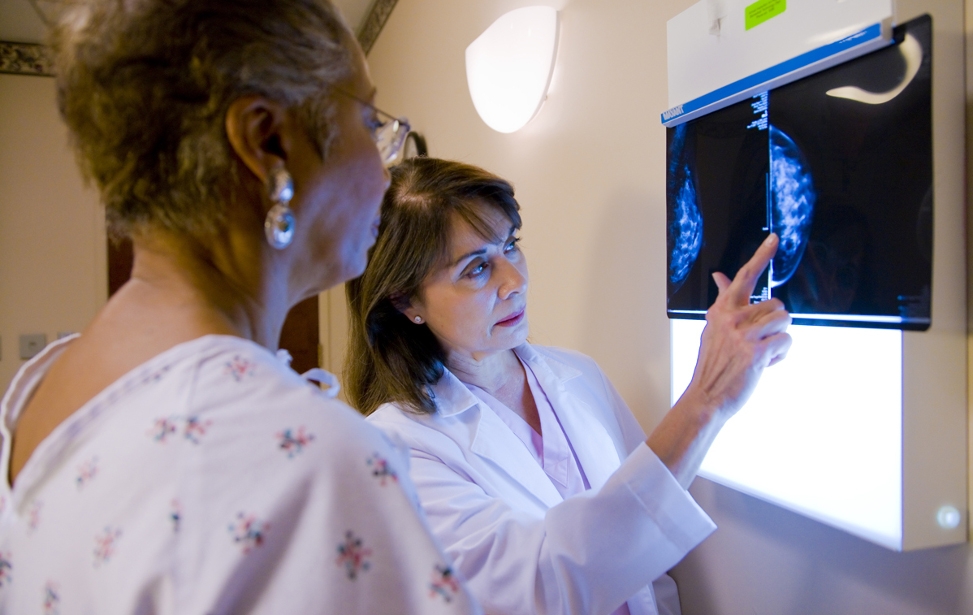For many women, juggling work, home life, and family leaves little time for them to take care of themselves. But taking the time to know what cancer screening tests are right for you could help save your life. The American Cancer Society® encourages you to talk with your health care provider about screening tests for breast cancer, cervical cancer, colorectal cancer, and lung cancer.
To estimate your risk of cancer and learn about ways to lower that risk, answer a questionnaire from the Siteman Cancer Center about your health, background, and lifestyle.
Breast: The American Cancer Society recommends that women ages 40 to 44 should have the choice to start screening with a mammogram every year if they wish to do so. From ages 45 to 54, they should get mammograms every year. Women 55 and older should switch to mammograms every other year, or can continue having yearly mammograms. Screening should continue as long as a woman is in good health and is expected to live at least 10 more years.
If you think you might be at a higher risk for breast cancer, talk with your health care provider to decide if you should start screening at an earlier age, and if you should have MRIs (magnetic resonance imaging) along with mammograms.
Where you get your mammogram matters! The team of Washington University radiologists and radiology technologists, who specialize in mammography, interpret more than 50,000 breast exams every year. They are solely dedicated to interpreting breast images. Learn more
Cervix: Testing can help prevent some cervical cancers by finding and removing pre-cancerous areas in the cervix to stop cancer before it starts. Women should start being tested for cervical cancer at age 21.
- Women between the ages of 21 and 29 should have a Pap test every 3 years.
- Women between 30 and 65 should have a Pap test plus an HPV test every 5 years (or a Pap test by itself every 3 years).
- Women over age 65 who have had regular cervical cancer testing and have had normal results can stop getting Pap tests.
If a woman has a history of a serious cervical pre-cancer, she should continue to be tested for at least 20 years after that diagnosis, even if testing continues past age 65.
Colorectal: This cancer can develop in men and women. Testing can actually help prevent some colorectal cancers by finding and removing pre-cancerous polyps to stop cancer before it starts. Beginning at age 50, women should start having regular colorectal cancer screening tests. Since several types of tests are available, women should ask their health care providers which tests are right for them.
This screening could save your life. The Washington University gastroenterology (GI) specialists have expertise in a comprehensive range of GI diseases. They are highly skilled at detecting and removing colon polyps or adenomas that could lead to cancer. Procedures are performed at Barnes-Jewish Hospital, Barnes Jewish West County Hospital, and Barnes Jewish South County Center. If you have questions or want assistance scheduling an appointment, please call (314) 362-5952.
Lung: Screening for lung cancer is recommended for those who are at a high risk for lung cancer due to cigarette smoking. Talk to your health care provider about screening if you meet the following criteria:
- Are between 55 and 74
- Are in good health, and have no signs of lung cancer
- Have at least a 30 pack-year smoking history AND are still smoking or quit within the past 15 years. (A pack-year is the number of cigarette packs smoked each day multiplied by the number of years a person has smoked. Someone who smoked a pack of cigarettes per day for 30 years has a 30 pack-year smoking history, as does someone who smoked 2 packs a day for 15 years.)
For more information on the steps you can take to find and maybe even prevent cancer, visit cancer.org/stayhealthy or call the American Cancer Society at 1-800-227-2345.
